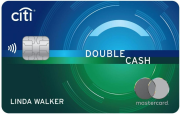The content on this page is accurate as of the posting date; however, some of the offers mentioned may have expired.

Is credit coverage worthwhile? You bet, especially when the unexpected occurs...
There's an old insurance axiom that goes, "You only need insurance when you need it," which is a simple way of saying that while none of us like paying for insurance of any kind, we're all glad we have it when the unexpected occurs.
When it does come to the unexpected, there are things we can easily overcome and other events that can rock our world. Granted, it's bad enough when certain unexpected events happen, such as a fender bender. Generally speaking though, you get your car fixed and you go on with life.
Then again, there are certain types of unexpected events, such as job loss, disability or the death of the primary-provider within a household, that have the ability to wipe out a family both emotionally and financially. It's bad enough when these things happen, but worse yet when a family is left financially devastated by the event - the ultimate insult to injury scenario.
Fortunately, there is a type of insurance - credit insurance (oft overlooked) - that is capable of protecting your financial security when the unexpected does occur. If you'd like to minimize the financial threat of unemployment, disability or death, credit protection insurance may be the solution. This form of optional insurance protects your debt repayments if you can't work due to accident or sickness, become unemployed through no fault of your own, suffer a total and permanent disability, or die.
Not surprisingly, there is a vast market for credit protection insurance, given that more than 205 million Americans have a credit card, car loan, mortgage or student loan, according to Credit Factor, a national credit monitoring agency. Credit protection promises these consumers the benefit of "guaranteed" loan payments in certain situations.
Kinds of Credit Insurance
Credit insurance comes in a variety of flavors - credit life, disability, unemployment and property.
Credit life insurance pays off the debt you owe if you die. The beneficiary of the policy is the company that the debt is owed to.
Credit disability insurance protects your credit rating by making your monthly minimum payment if you become medically disabled.
Involuntary unemployment credit insurance will make your minimum monthly payment if you are laid-off or downsized, although purchases made after the date of involuntary unemployment are generally not covered.
Credit property insurance is designed to cancel debt on items purchased on credit if those items are completely destroyed by specific incidents listed in the policy.
Understanding How Credit Insurance Works
Credit protection coverage is usually offered by financial institutions in partnership with insurance companies. This specialized form of insurance generally makes the minimum payments - typically 2- to 3-percent of the balance - on your personal loans, lines of credit and credit cards in case of unemployment or disability. If you die, your account may be paid off in full.
However, a number of exclusions apply. For example, you can't claim for chronic illnesses diagnosed before the policy start date. Other exclusions include normal pregnancy or childbirth, cosmetic surgery or disability caused by intentional injury or drug abuse.
Also, you can't claim for unemployment due to your work being seasonal or your fixed-term contract ending; because of voluntary redundancy; due to resignation or dismissal as a result of misconduct; or if you refuse any offer of reasonable alternative employment by your employer.
How Credit Insurance Can Help You
Credit insurance can give you peace of mind knowing that loan payments will be made if you lose your job, health or life. Coverage is available on personal loans, credit lines, bankcards and small business loans. Using BB&T's (U.S. Credit Insurance Provider) Payment Protection as an example, here's how credit protection can help you.
- Loss of life - Can prevent your life insurance payout from being consumed by debt payments.
- Disability - Will make your payments until you return to work.
- Unemployment - Will cover your monthly payments while you're looking for a new job.
- Critical injury - Will pay your account in full if injuries lead to the loss of a limb, hearing or sight, or cause other severe complications.
- Terminal medical condition - Will pay your account in full if you are struck by a terminal illness.
- Leave of absence - Will make your monthly payments if you need to take time off for a variety of reasons, such as to care for a new baby, to care for a sick relative or even to return to active military duty.
- Hospitalization - Allows you to file a benefit request for payments within two days of being hospitalized under a doctor's care.
Is Credit Protection Worth It
Whether credit protection is financially feasible for you will depend on your unique situation. When making the decision, you should consider whether you have adequate health and disability insurance coverage, as well as savings, to cover you financially in the event the unexpected does occur. In the end, the biggest consideration may well be whether your financial security and piece of mind are worth the cost of credit protection insurance - roughly $1.00 per month for every $100 of debt covered. Granted, you probably won't like paying the monthly premiums, but you'll be glad you did make the decision to take out the coverage, if and when the unexpected does occur.
Pros and Cons
Based on research from experts, here are some of the most significant pros and cons of credit protection insurance:
Advantages
- No physical exam is required
- Small coverage amounts may be purchased, depending on your individual needs
- The cost is financed as a part of the loan and added to the monthly loan balance
Disadvantages
- Many limitations may apply
- The cost is relatively higher than other types of insurance
- Making claims is often more difficult





